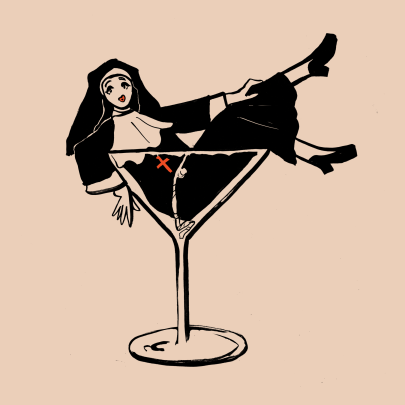Aug 5, 2016 Theatre
Traditional Comedia Dell’Arte is the world of the amorous old Pantalone, the ranting Il Dottore and the braggart Il Capitano, stock characters whose social standing was pilloried in endlessly familiar stock situations.
In Leilani director Pedro Ilgenfritz was inspired to replace these with Kiwi stereotypes. We get nine multi-cultural masks, beautifully made by Kate Lang, brought to life by three actors. In making the translation, Ilgenfritz drops the authority figures and focuses on low-status characters, and we lose the friction of Italian social class. There could have been an opportunity to take apart the New Zealand egalitarian myth, especially with our inequality stats, but Ilgenfritz does not grasp it.
Leilani ends up homeless and living on the streets after her boyfriend Junior shacks up with a new missus. From there the story hangs limply, never sure if it wants to be a hopeful triumph against adversity or a tragic fable (the ending is a cop-out to this question). Its treatment of homelessness comes off as vague and ill-informed. Perhaps Mahuika could have spent some time working with Hobson Street Theatre Company, based at the City Mission.
It’s not surprising to learn that the masks came first, then the characters, then the story, because the latter is the least developed. The narrative is an excuse to get different characters in each other’s orbits. Relationships, backstories, and motivations remain uncommunicated. Leilani is refused shelter by a Pakeha couple, but it’s not clear how they know each other, or why the wife is so vindictive. Leilani’s story is stuck in soap land – Shortland Street Dell’Arte.
Irasa Siave, Natasha Daniel and Aymee Karaitiana-Jones are skilled performers, effortlessly changing up their physicality and energy to match their various masks, disappearing into their roles. Daniel in particular stands out as the ineffectual Tim (whose arched eyebrow and jutting teeth bring a laugh of recognition at first sight) and Junior’s new babe Aroha, who seems straight out of a season of The Bachelor.
As Leilani continued, I began to wonder what the experience would be like sans masks. The comic and theatrical permission the half-masks allow the actors is only half-realised. They milk their exits, but the scenes themselves have little comedic escalation.
The drama doesn’t sit properly either. We’re told again and again that Leilani has a sad face, but this is not what the mask, with its full cheeks, nor Irasa Siave’s eternally optimistic performance communicates. There is definite potential to break out of the form and play against comedy. These masks are yearning to be real, wanting to become more human than stereotype. But they have not managed to find the sweet spot between bathos and pathos, and neither is satisfactory on its own.
With all the recent heat on homelessness in Auckland, Leilani should be a resonant story. It means well, but sadly it does not illuminate, delight, touch or entertain as much as it needs to.
Leilani, Q Theatre until August 13, qtheatre.co.nz





